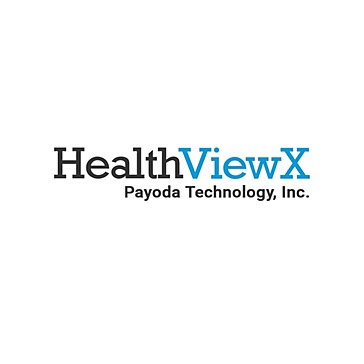Description

HealthViewX Chronic Care Management

RxPx
Comprehensive Overview: HealthViewX Chronic Care Management vs RxPx
HealthViewX is a provider of healthcare solutions, including Chronic Care Management (CCM) and RxPx, which cater to different aspects of patient care and management. Below is a detailed overview of these two products:
a) Primary Functions and Target Markets
Chronic Care Management (CCM)
-
Primary Functions:
- Care Coordination: Streamlines communication among healthcare providers to offer cohesive care plans for patients with chronic diseases.
- Patient Engagement: Facilitates regular check-ins and monitoring of patients' health status to encourage adherence to treatment plans.
- Data Management: Centralizes patient information, making it accessible for healthcare professionals to review and update clinically relevant data.
- Compliance and Billing Support: Assists providers in managing billing processes for Medicare's CCM program by ensuring compliance with documentation and reporting requirements.
-
Target Markets:
- Small to medium-sized healthcare practices
- Accountable Care Organizations (ACOs)
- Hospitals and healthcare systems
- Providers participating in value-based care arrangements
RxPx
-
Primary Functions:
- Prescription Management: Streamlines the prescribing process by automating prescription renewals and ensuring accuracy in medication dispensing.
- Patient Safety: Enhances safety through medication reconciliation and alerts for potential drug interactions.
- Pharmacy Coordination: Facilitates seamless communication with pharmacies to ensure timely prescription fulfillment and refills.
- Analytics and Reporting: Provides insights through data analytics to improve prescription practices and patient outcomes.
-
Target Markets:
- Healthcare providers (physicians, specialists)
- Pharmacies
- Healthcare facilities such as clinics and hospitals
b) Market Share and User Base
-
Chronic Care Management (CCM):
- Holds a niche market share, primarily captured through partnerships with healthcare providers participating in the CMS CCM program.
- The user base is expanding as more healthcare systems adopt value-based care models. It's more prevalent in markets where there is a significant push for Medicare reimbursement for chronic care services.
-
RxPx:
- Market share depends heavily on integrations with Electronic Health Records (EHR) systems and partnerships with pharmacies.
- The user base consists of both individual healthcare providers and larger healthcare facilities, with growth driven by innovations in digital health and increasing demands for efficient medication management solutions.
c) Key Differentiating Factors
-
Chronic Care Management:
- Focuses on holistic patient management, emphasizing long-term health outcomes and reducing hospital readmissions.
- Prioritizes compliance with CMS regulations, providing robust billing and reporting features.
- Integrates telehealth options and remote patient monitoring tools to engage and manage patients more effectively.
-
RxPx:
- Emphasizes medication management and patient safety, reducing errors associated with prescriptions.
- Offers advanced analytical tools for prescription trends and medication usage, which can improve overall pharmaceutical care.
- Tailored for fast-paced environments where efficient prescription processes are critical, such as high-volume clinics or retail pharmacy chains.
Overall, both HealthViewX CCM and RxPx aim to enhance healthcare quality, but they serve different needs within the healthcare system. CCM is best suited for practices focusing on chronic disease management, while RxPx fits contexts where prescription accuracy and efficiency are paramount. Their adoption reflects the healthcare industry's broader trends toward integrated care and digital transformation.
Contact Info

Year founded :
Not Available
Not Available
Not Available
Not Available
Not Available

Year founded :
2013
+1 855-888-2031
Not Available
Australia
http://www.linkedin.com/company/rxpx-health
Feature Similarity Breakdown: HealthViewX Chronic Care Management, RxPx
As of my last update, HealthViewX Chronic Care Management (CCM) and RxPx are healthcare solutions that focus on distinct aspects of patient and chronic care management. Here's a breakdown of their features and similarities:
a) Core Features in Common:
-
Patient Management:
- Both platforms provide tools for comprehensive patient management, including storing patient details, histories, and care plans.
-
Care Coordination:
- They offer features for coordinating care among different healthcare providers, which is essential for managing chronic conditions effectively.
-
Data Integration:
- Integration with Electronic Health Records (EHR) and other medical data sources is supported by both to ensure real-time updates and access to patient information.
-
Appointment Scheduling:
- Both platforms facilitate scheduling appointments, reminders, and follow-ups to ensure continuous patient engagement.
-
Reporting and Analytics:
- Tools for generating reports and analyzing data for better clinical decision-making are common features.
-
Secure Communication:
- Secure messaging and communication channels for patient-provider interactions are supported by both platforms.
b) User Interface Comparison:
-
HealthViewX Chronic Care Management:
- Known for its user-friendly interface, HealthViewX CCM focuses on providing a seamless workflow for care coordinators and healthcare providers. The interface typically emphasizes ease of navigation and accessibility of patient data and care plans.
-
RxPx:
- RxPx generally offers a more data-centric and modern interface, which may include dashboards that focus on medication management, patient adherence, and outcomes.
- It might place a stronger emphasis on user engagement through visuals and interactive elements, tailored towards pharmaceutical and treatment adherence processes.
c) Unique Features:
-
HealthViewX Chronic Care Management:
- Chronic Care Specific Tools: Offers specific modules for managing chronic conditions like diabetes and hypertension, providing tailored care pathways and patient education materials.
- Integration with Telehealth: Enhanced telehealth capabilities for remote monitoring and virtual patient interactions.
-
RxPx:
- Medication Management: This platform is likely focused more on pharmaceutical aspects, with sophisticated tools for managing prescriptions, monitoring patient adherence to medication plans, and pharmacovigilance.
- Patient Engagement: May include unique patient engagement features such as reminders, adherence tracking, and tailored patient education focusing on medication regimes.
Each platform is tailored to different aspects of healthcare management, with HealthViewX CCM focusing more broadly on care coordination and chronic disease management, while RxPx may have a more targeted emphasis on medication management and patient adherence. Always verify the latest features and capabilities by consulting the respective company's literature or representatives, as software solutions continue to evolve rapidly.
Features

Not Available

Not Available
Best Fit Use Cases: HealthViewX Chronic Care Management, RxPx
HealthViewX Chronic Care Management and RxPx serve distinct purposes within the healthcare technology space, each catering to specific needs and scenarios. Here's a breakdown of their ideal use cases:
HealthViewX Chronic Care Management
a) Best Fit for Businesses or Projects:
-
Primary Care Providers and Clinics: The Chronic Care Management (CCM) module by HealthViewX is particularly beneficial for primary care providers and small to medium-sized clinics that manage patients with chronic conditions. These organizations often look to improve patient outcomes and engagement by consistently monitoring and managing long-term care.
-
Accountable Care Organizations (ACOs): ACOs focused on value-based care can utilize CCM to ensure that patients with chronic conditions receive continuous, coordinated care, which can reduce hospital readmissions and improve overall care quality.
-
Home Health Agencies: These agencies can leverage CCM to deliver remote care monitoring solutions, ensuring patients receive precise, routine care management from the comfort of their homes.
-
Hospitals and Health Systems: Larger healthcare systems can implement CCM to manage chronic disease patients effectively across different facilities, maintaining continuity of care and using data-driven insights to enhance treatment plans.
b) Ideal Scenarios for RxPx:
-
Pharmacy and Prescription Management: RxPx is designed for settings where medication management and patient engagement through prescriptions are a priority. This makes it an excellent solution for pharmacies, whether standalone or affiliated with larger healthcare systems.
-
Specialty Clinics: Clinics that focus on specific conditions requiring complex medication regimes (e.g., oncology or neurology) can benefit greatly from RxPx, as it helps ensure medication adherence and simplifies prescription processes.
-
Telehealth Providers: In the realm of telehealth, RxPx can play a critical role in managing patient prescriptions, ensuring that patients receive their medications efficiently and with the correct guidance, which can be crucial for remote patient management.
d) Catering to Different Industry Verticals or Company Sizes:
-
Industry Verticals: Both products are versatile in application across multiple healthcare verticals. HealthViewX CCM is focused on chronic disease management, which is crucial in primary, specialty, and long-term care sectors. RxPx is particularly impactful in pharmacy and hospital systems where medication management is integral.
-
Company Sizes: HealthViewX CCM is scalable, fitting both small practices and large health systems. The ability to integrate with existing EMR/EHR systems makes it suitable for varied IT infrastructures. RxPx also scales well, serving independent pharmacies to large healthcare organizations, adapting to the complexity and volume of prescription management needs.
In summary, the choice of solution between HealthViewX CCM and RxPx depends on the specific healthcare setting, type of care provided, and the operational focus of the organization looking to enhance its healthcare delivery models.
Pricing

Pricing Not Available

Pricing Not Available
Metrics History
Metrics History
Comparing teamSize across companies
Conclusion & Final Verdict: HealthViewX Chronic Care Management vs RxPx
To evaluate the best product offering between HealthViewX Chronic Care Management and RxPx, it is essential to consider various factors such as features, pricing, user experience, integration capabilities, and support services. Here's a detailed breakdown to help draw a conclusion and final verdict:
a) Overall Best Value
HealthViewX Chronic Care Management offers the best overall value, mainly due to its comprehensive range of features specifically tailored for chronic care management, effective integration with existing healthcare systems, and strong support network, which are crucial for healthcare providers aiming for improved patient outcomes.
b) Pros and Cons
HealthViewX Chronic Care Management:
Pros:
- Comprehensive Features: Includes tools for remote patient monitoring, care coordination, and patient engagement, ensuring holistic chronic care management.
- Integration Capabilities: Easily integrates with Electronic Health Records (EHR) and other existing healthcare systems, streamlining workflows for providers.
- User-Friendly Interface: Offers an intuitive interface that simplifies the user experience for healthcare professionals.
- Robust Support: Provides excellent customer support, ensuring timely assistance and smooth implementation.
Cons:
- Higher Initial Costs: May have a higher upfront cost compared to some competitors.
- Complex Implementation: Depending on the existing infrastructure, initial setup and integration can be complex and time-consuming.
RxPx:
Pros:
- Cost-Effective: Generally offers more budget-friendly pricing and payment models, making it attractive for smaller practices or organizations with budget constraints.
- Specialized Solutions: Tailored solutions for medication management and patient engagement, particularly for outpatient settings.
- Scalable: Easy to scale as the practice grows or patient numbers increase.
Cons:
- Limited Features for Chronic Care: More specialized in certain aspects of patient care and may lack some of the comprehensive chronic care management tools that providers require.
- Integration Challenges: May face challenges with integration into some EHR systems or require additional customization.
- Less Comprehensive Support: Support services may not be as robust, which could be a consideration during deployment and troubleshooting.
c) Recommendations
For users trying to decide between HealthViewX Chronic Care Management and RxPx, the following recommendations could be helpful:
-
Evaluate Specific Needs: Assess the specific needs of your healthcare practice. If the focus is on comprehensive chronic care management with extensive tools for patient tracking and engagement, HealthViewX would be the more suitable option.
-
Budget Considerations: For smaller practices or organizations with limited budgetary allowances, RxPx might present a more feasible option, especially if the primary need is focused on medication management.
-
Integration Requirements: Consider how well each system will integrate with your existing technologies and workflows. HealthViewX might provide seamless integration if your setup involves various EHR systems and requires robust connectivity.
-
Future Scalability and Growth: Analyze the potential for growth and how each system will adapt. HealthViewX provides extensive scalability features, which might be beneficial for long-term planning.
In conclusion, choosing the right solution depends on the specific requirements and long-term goals of the healthcare provider. HealthViewX stands out for those focused on comprehensive chronic care management, whereas RxPx can be more appealing for practices seeking cost-effective and specialized solutions.
Add to compare
Add similar companies



